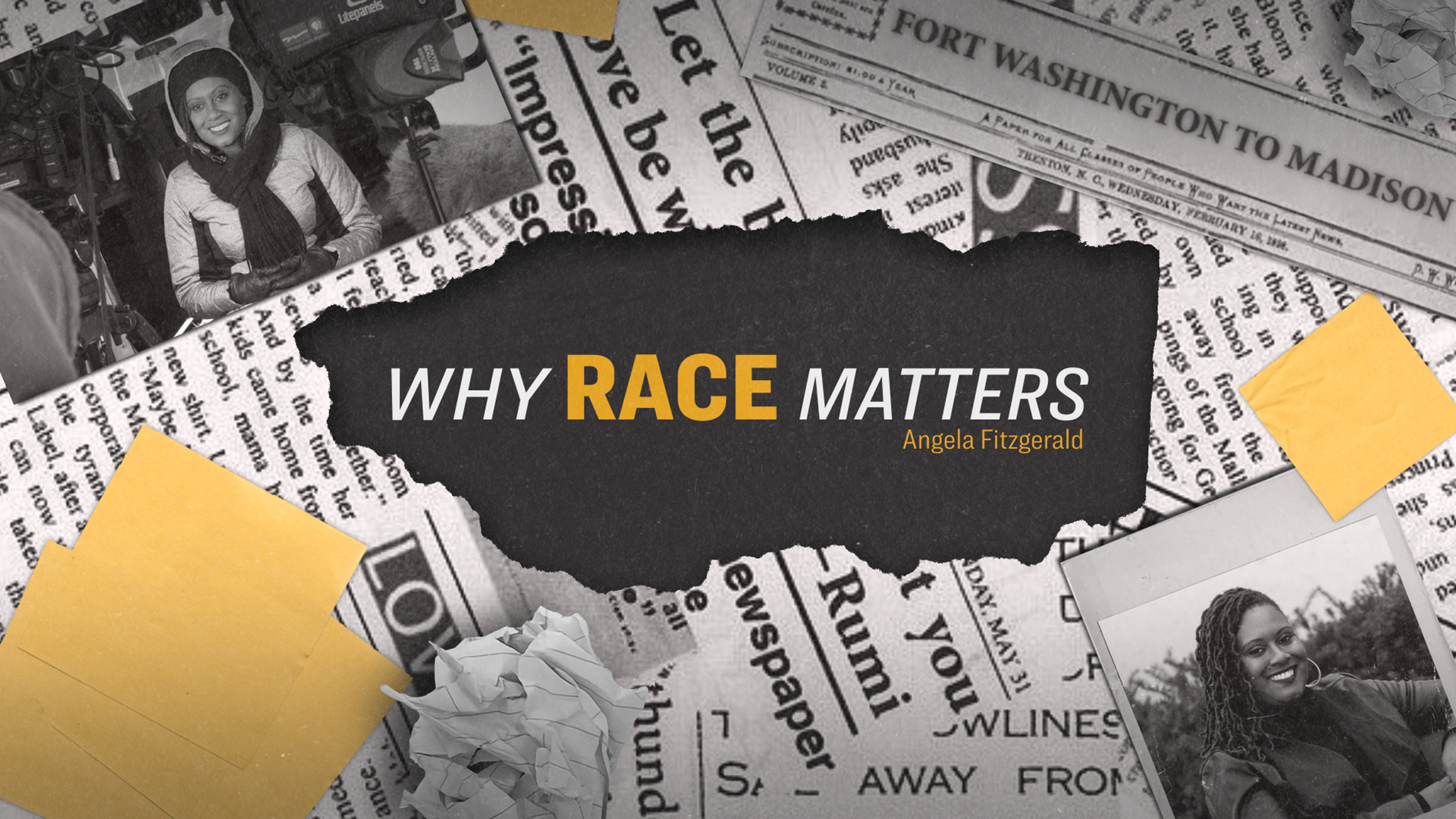– Welcome to University Place Presents. I’m Norman Gilliland. The 4th of July, Thanksgiving. Those are great times to celebrate American music, but actually, any day will do. And we’re going to celebrate American music with a sampling of 200 years of American song, featuring Trevor Stephenson and his talented quartet of singers.
To Anacreon in heaven
Where he sat in full glee
A few sons of Harmony sent a petition
That he their inspirer and patron would be
When this answer arrived from the jolly old Grecian
Voice, fiddle, and flute
No longer be mute I’ll lend you my name and inspire you to boot
And, besides I’ll instruct you, like me, to intwine
The myrtle of Venus with Bacchus’s vine
O say can you see, by the dawn’s early light
What so proudly we hailed
At the twilight’s last gleaming
Whose broad stripes and bright stars
Through the perilous fight
O’er the ramparts we watched
Were so gallantly streaming
And the rocket’s red glare
The bombs bursting in air
Gave proof through the night
That our flag was still there
O say does that star-spangled banner yet wave
O’er the land of the free
And the home of the brave
– Was it my imagination, Trevor, or was it a lot easier to sing as a drinking song? [both laughing]
– Well, it’s probably harder without a ball park around.
– That’s true, yeah.
– But it’s amazing that it’s the same song, with a few accidentals changed here and there.
– Right, not the official national anthem till 1931, so a lot of time to make those changes over the years.
– Right, so it begins, in its first form, as an English gentleman’s club song written by William Stafford Smith, and those are the original words. There are, of course, something like 10 or 12 verses to it, which I’m sure they just went on and on, winding up as they went and
– Did you say winding up or wining up?
– Wining up, and lots of, I mean, it’s all about Bacchus, and Anacreon, right, the god of having a good time, or at least an early poet of having a good time. So that tune is in the air, and is quite well-known when Francis Scott Key, in 1812, while he’s watching the Battle of Fort McHenry, he writes his own poem, which we know as “The Star-Spangled Banner,” to that existing tune, “Anacreon in Heaven. ” And so, that’s how it all gets fused together. It’s called a parody technique, writing new words to old tunes, and so everybody would have been able to jump on board, but, as you said, not till the 1930s does it become the national anthem.
– Well, before we go further, introduce our talented singers.
– Yes, this has been just a joyous week here. I’ll start here on this end with our bass, Michael Hawes, he’s from Chicago. We’re just thrilled he came up to Madison for this fun few days. Thank you, Michael. And next to him is Nola Richardson, soprano from New York City. We’ve worked together a lot and we just, thanks for jumping on an airplane and coming out, and next to her is alto, mezzo-alto, [laughing] Clara Osowski, from Minneapolis, and actually just back from England. So that was a lot of flying for you as well. And Scott Brunscheen, who lives now in Des Moines, he’s singing tenor, he’s lived all over the place and is now teaching at Drake in Des Moines.
– We’ll stay in the 18th century for a while. There was American music other than, of course, “To Anacreon in Heaven,” and “The Star-Spangled Banner,” being composed in the 18th century, and some real colorful characters emerge, don’t they?
– We’ll start with William Billings, and two pieces by him, one called “The Bird,” which is a very religious text, a beautiful poem, why I’m like a bird, always flying from God even though God is trying to take care of me, and then the second one is called “Africa. ” The name has nothing to do with the text, it’s just a simply very evangelical Isaac Watts text, so Africa doesn’t play in it, but that was something they liked to do, kind of have puzzling titles to pieces. It was a game. William Billings was quite a character. He’s born in 1746, he’s a Bostonian. He’s not particularly educated.
He’s self-taught as a musician. He’s a tanner by trade. He was one of the most asymmetrical-looking people ever, with one short leg and one eye, and with snuff paraphernalia dangling all over him. He was completely addicted to snuff. Apparently, not particularly elegant of speech, either, except when he talked music, people say you knew you were talking to a real musician.
– Norman: And some of it sounds a little, even to our ears today, a little avant-garde, some of those pieces by Billings.
– He wrote pieces that have quite pungent dissonances deliberately interjected into them, a little bit as a precursor to the great Charles Ives, who we’ll get to later. So maybe it’s just in the American water. [laughing]
– Norman: And then we also have Quakers?
– Right, and then after the Billings pieces, we’ll have two Quaker tunes, “Come Thou Fount of Every Blessing,” and then “My Life Flows on in Endless Song,” and that’s followed by a Shaker tune, “Give Good Gifts. ” Those are all part of the great 19th century American religious revivals that were, the 19th century was really a strong time for that, and the music is spectacular, so we’ll sample that.
[gentle piano music]
Since I have placed my trust in God
A refuge always nigh
Why should I, like a timorous bird
To distant mountains fly
Why should I
Why should I
Like a timorous bird
Why should I
Why should I
Like a timorous bird
To distant mountains fly
Like a timorous bird
To distant mountains fly
To distant mountains fly
To distant mountains fly
Why should I
Like a timorous bird
Distant mountains fly
To distant mountains fly
To distant mountains
To distant mountains fly
Now shall my inward joys arise
And burst into a song
Almighty love inspires my heart
And pleasure tunes my tongue
God on his thirsty Sion Hill
Some mercy drops has thrown
And solemn oaths have bound his love
To shower salvation down
Deep on the palms of both my hands
I have engraved her name
My hands shall raise her ruined walls
And build her broken frame
[gentle piano music]
Come, thou fount of every blessing
Tune our hearts to sing thy grace
Streams of mercy, never ceasing
Call for songs of loudest praise
While the hope of life’s perfection
Fills our hearts with joy and love
Teach us ever to be faithful
May we still thy goodness prove
Come, thou fount of every vision
Lift our eyes to what may come
See the lion and the young lamb
Dwell together in thy home
Hear the cries of war fall silent
Feel our love glow like the sun
When we all serve one another
Then our heaven is begun
[gentle piano music]
My life flows on in endless song
Above earth’s lamentation
I hear the real, though far off hymn
That hails the new creation
Through all the tumult and the strife
I hear the music ringing
It sounds an echo in my soul
How can I keep from singing
[gentle piano music]
Give good gifts one to another
Peace, joy, and comfort gladly bestow
Harbor no ill ‘gainst sister nor brother
Smooth life’s journey, as you onward go
Give good gifts one to another Peace, joy, and comfort gladly bestow
Harbor no ill ‘gainst sister or brother
Smooth life’s journey, as you onward go
Broad as the sunshine, free as the showers
So shed an influence, blessing to prove
Give for the noblest of efforts your pow’rs
Blest and be blest
Is the law of love
[audience applauding]
– Lovely stuff. You know, there’s one star up here that we haven’t talked about yet.
– [laughing] Yes, who is this here? And is it even American? And the answer is no, it’s a European import. This is an 1855, circa 1855 Viennese Bsendorfer piano that made its way here, actually, probably in the 1970s or ’80s. Its magic is that it’s all wooden in construction. It has no metal plate in it, so it is kind of a massive guitar, in a way. There’s just two little struts in there. It also has the old German action in it, which is still an 18th century style, fortepiano action, very, very responsive, it’s a very quick action, but you can hear quite a mellow sound in many different registers, the top and the bottom and everything in between, sound more like soprano, tenor, alto, and bass, and it’s, those zones are there. It’s a long story about how it got here, and we don’t have time for it, but it ended up in Milwaukee in the 1980s and along with about 40 other of these instruments. I spent about two years rebuilding this and restringing it, and with period wire and hammer parts and things like that.
So we’re so glad, and you can see it’s made from the age of just love of wood, it was just, the wood grain is magnificent. I’m trying to think of anything, oh, I guess the man who made it, Ignaz Bsendorfer, ran the factory. He was at the end of his life when this was made in the 1850s. When he started around 1810, 1815, making pianos in Vienna, he would have, I mean, Beethoven and Schubert would have been their clients. This is kind of a rearguard action, 1850s instrument, but really looking back, really to the late 18th century aesthetic. It’s just really fun to play, and we’ve been moving it around a lot.
– And contemporary with our next composer, by one of those remarkable coincidences of history, July 4th, 1826, John Adams dies, Thomas Jefferson dies, it’s the 50th anniversary of the Declaration of Independence, and Stephen Foster is born.
– Is born. On the same day.
– All the same day.
– July 4th
– 1826.
– 1826, right. So a good day.
– Yeah.
– And as Foster is born, just near Pittsburgh, which a lot of people don’t know, he always seems like a Mason-Dixon composer.
– Norman: Sure.
– But he is a Northerner, and he makes a living as a songwriter for quite some time. One of his first big hits is “Oh! Susanna,” which we’ll be doing in this next set.
– About 1847?
– Right. He’s publishing, he’s doing all right, he’s a very careful, he works quite carefully. He’s not a performer. He likes to write songs, and of course, his tunes are largely lifted from people he would have heard, I mean, borrowing was perfectly fine. But I think his magic is that he always, he wrote his own words and he was able to make the words really add up to the tune, to what they were saying, and that fusion is what we respond to. Besides the tunes themselves being great, there something about the way the words are working as well.
– And they would have been particularly poignant, a lot of them, for people of his time. “Hard Times, Come Again No More,” certainly, people were familiar with hard times in this country in the 1850s and ’60s. You mentioned, “Oh! Susanna,” which is one of his most buoyant tunes.
– He actually at one point said that “Hard Times” was his favorite of his own songs, or the one that he enjoyed
– Possibly he could
– He enjoyed.
– Relate to it most, as they say. [Trevor laughing]
– And just one other thing, the last song we’ll be doing of the Stephen Foster set is called “The Voices That Are Gone,” and he wrote it during the Civil War, of course, the country is in extreme crisis, and the music business is also in crisis, publishing is really going away. He’s writing some war songs, which are not his strong suit, but he writes this beautiful, ghostly poem, “The Voices That are Gone,” and sets it in the key of C major, which in the old tuning systems that we have on here today, C major was the most, kind of unreal sounding of all keys, the purest in many ways.
– And I think Jeanie will put in an appearance too?
– Yeah, “As I Dream of Jeanie with the Light Brown Hair,” she will be here as well.
– All right. [footsteps tapping]
[gentle piano music]
Let us pause in life’s pleasures
And count its many tears
While we all sup sorrow with the poor
There’s a song that will linger forever in our ears
Oh, hard times come again no more
‘Tis the song, the sigh of the weary
Hard Times, hard times Come again no more
Many days you have lingered around my cabin door
Oh, hard times come again no more
[gentle piano music]
‘Tis a sigh that is wafted across the troubled wave
‘Tis a wail that is heard upon the shore
‘Tis a dirge that is murmured around the lowly grave
Oh, hard times come again no more
‘Tis the song, the sigh of the weary Hard Times, hard times
Come again no more Many days you have lingered around my cabin door
Oh, hard times come again no more
[gentle piano music]
[peppy piano music]
I come from Alabama with my banjo on my knee
And I’m goin’ to Louisiana my true love for to see
It rained all night the day I left
The weather it was dry
The sun so hot I froze to death
Susanna, don’t you cry
Oh, Susanna
Oh, don’t you cry for me
‘Cause I come from Alabama with my banjo on my knee
[peppy piano music]
I had a dream the other night
When everything was still
I thought I saw Susanna dear
A comin’ down the hill
A red, red rose was in her hand
A tear was in her eye
I said I come from Dixieland
Susanna, don’t you cry
Oh, Susanna
Oh, don’t you cry for me
‘Cause I come from Alabama with my banjo on my knee
[pages rustling]
[gentle piano music]
I dream of Jeanie with the light brown hair
Borne, like a vapor, on the summer air
I see her tripping where the bright waters play
Happy as the daisies that dance on her way
Many were the wild tones her merry voice would pour
Many were the blithe birds who warbled them o’er
I dream of Jeanie with the light brown hair
Floating, like a vapor
On the soft summer air
[gentle piano music]
[gentle piano music]
When the twilight shades fall o’er me
And the evening star appears
Memory brings the past before me
Joys and sorrows, smiles and tears
Then again bright eyes are gleaming
With the love once in them shone
Then like music heard when dreaming
Come the voices that are gone
Once again bright eyes are gleaming
With the light that in them shone
Then like music heard when dreaming
Come the voices that are gone
[gentle piano music]
Sweet as wood dove’s note when calling
To her mate as night draws on
Soft as snowflakes lightly falling
Come the voices that are gone
Voices heard in days of childhood
Softly at the hour of prayer
Or loud ringing through the wildwood
When the young heart knew no care
Once again bright eyes are gleaming
With the light that in them shone
Then like music heard when dreaming
Come the voices that are gone
[gentle piano music]
[audience applauding]
– Thank you.
– One of the romantic tragedies of American music, Stephen Foster dies at 37 with 38 cents in his pocket and a slip of paper that says, “Dear friends and gentle hearts. ”
– Wow. [laughing] In New York City, yeah, hard times for him too. Publishing business had really gone down and money was quite scarce. – There were some songwriters at that time, though, the Civil War that were doing pretty well.
– Exactly.
– One of them was George F. Root, best known for “Tenting on the Old Campground. ”
– And “The Battle Cry of Freedom. ”
– “Battle Cry of Freedom. ”
– Yeah, but “Tenting on the Old Campground. ” Or new campground, sometimes, it gets mixed up.
– It was somebody else’s campground last night, but now it’s ours, yeah.
– Exactly. George Root published it, war songs during the war, and they were quite successful and we’re going to do one of them here, and then “The Battle Cry of Freedom” will appear as a little snippet in the last Ives song that we’ll do.
– Well, Charles Ives, well, we could go on and we could do a series of shows about Charles Ives.
– We should.
– I know you’re a big fan of him.
– I am.
– He was an innovator. And you say, “Oh, you’re talking about music?” Well, not right away. I’m talking about insurance. Charles Ives had a big day job. He was an insurance executive, created the concept of estate planning, which is popular with many of our broadcast institutions today.
– [laughing] That’s right.
– And I think also created the concept of training insurance executives. But at night, he was one heck of a composer.
– Right, so he had, a true American example, businessman, great composer, and an innovative composer taught by his father to be so. Charles Ives’ father, George Edward Ives, was a virtuoso cornet player who ended up in the Union army at the age of 17 and was in battle situations in the East, who came back from the war, he survived it, set up shop and married and had a family in Danbury, Connecticut, and Charles Ives, the composer, is born about, in 1874 or so. George Edward taught Charles Ives to play in one key while singing in another, the same song. [Norman chuckling] And also, they tuned their two pianos, for an experiment, they would tune the pianos a quarter step apart, and bitonality, polytonality was a big part of their language. It’s hard to imagine this going on in the 1880s in this little town in Connecticut, that perhaps the most experimental think tank of all, and Charles Ives, one of his great memories is of childhood, watching two bands come into town from the opposite ends of town, playing different songs in different keys, and he’s sitting on a hill trying to assemble it. And you can hear it in all of this music. It’s incredible how he makes sense out of it.
– I had, unbeknownst to me, one time, two turntables going at the same time, and I thought I was playing Ives, but it was actually [audience laughing] two different things going at the same time.
– I think at one point he said, “What’s wrong? “Are my ears on backwards?” [both laughing]
– Norman: And he had trouble getting acceptance in the musical establishment. His father, though, I understand was quite a cornet player.
– Yeah, absolutely. And again, in the Union Army and then gone on through his life, and his father had played recitals of all Schubert songs, just cornet and piano, with no words, and with dizzying beauty as well. And the Ives pieces that we’ll do here, the first one is a very avant-garde, about a leopard in a cage, pacing back and forth, and there’s also two little girls playing in the backyard in the second song. There is “Shall We Gather at the River,” with chords that perhaps even Oscar Peterson wouldn’t have thought of, amazingly innovative jazz chords to that, to the old hymn tune, “At the River,” and then we’ll end with a World War I song, “He is There,” which has, of course, in Ives’ inimitable fashion, all sorts of Civil War tunes piled in on top of it, and it’s a big parade. And I will be joined at the bench for that one by someone.
– Oh, spoiler alert, okay. George Root once, and then four from Charles Ives.
[gentle piano music]
Just before the battle, mother
I am thinking most of you
While upon the field we’re watching
With the enemy in view
Comrades, brave, are round me lying
Filled with thoughts of home and God
For well they know that on the morrow
Some will sleep beneath the sod
Farewell, mother, you may never
You may never, mother
Press me to your heart again
But, oh, you’ll not forget me, mother
You will not forget me
If I’m numbered with the slain
[pages rustling]
[discordant piano music]
A leopard went around his cage
From one side back to the other side
He stopped only when the keeper came around with meat
A boy who had been there three hours
Began to wonder
Is life anything like that
[gentle piano music]
On sunny days in our backyard
Two little flowers are seen
One dressed, at times, in brightest pink And one in green
The marigold is radiant The rose passing fair
The violet is ever dear The orchid, ever rare
There’s loveliness in wild flowers
Of field or wide savanna
But fairest, rarest of them all
Are Edith and Susanna
[gentle piano ending notes]
[gentle piano music]
Shall we gather at the river
Where bright angel feet have trod
With its crystal tide forever
Flowing by the throne of God
Gather at the river
Yes, we’ll gather at the river
The beautiful, the beautiful river
Yes, we’ll gather at the river
That flows by the throne of God
Shall we gather
Shall we gather at the river
– Right here.
[upbeat piano music]
Fifteen years ago today
A little Yankee, little Yankee boy
Marched beside his granddaddy
In the Decoration Day parade
The village band would play those old war tunes
And the GAR would shout
Hip, hip, hooray in the same old way
As it sounded on the old camp ground
That boy has sailed o’er the ocean
– Singers: Hooray! He is there, he is there, he is there He’s fighting for the right But when it comes to might He is there, he is there, he is there As the Allies beat up all the warlords He’ll be there, he’ll be there And then the world will shout The battle cry of freedom Tenting on a new campground Tenting on a new campground For it’s rally round the flag, boys Rally once again Shouting the battle cry of freedom [audience applauding]
– Norman: A multi-talented crew we have here.
– Bass singer and piccolo player, right, yeah.
– Norman: So they covered it, Alpha and Omega, there.
– Yes, right. And I hope everyone could hear, there were just all sorts of songs, with the National Anthem quoted right at the end. [plays snippet] But in an off measure. I mean, it’s just, it’s really madness.
– And Charles Ives did some, what shall we say? Remarkable recordings of that song in some areas.
– Playing the piano and him singing
– In a different key, or something.
– Oh yeah, who knows. Toward the end of his life, he made that recording, yeah, he did.
– There’s a composer, actually, pretty much a contemporary of Charles Ives whose very name, I’ll call it a name change over the course of time, says a lot about her career, and you might say rising fortunes and things that she had to work against early on. Originally known, even, I think, in the 1970s, when her recordings first really became known, or recordings of her music, known as Mrs. H. H. A. Beach, but gradually, getting a fuller recognition as Amy Beach, and sometimes considered the first major American woman composer.
– Absolutely. She published during her lifetime. She was a great pianist. She’s really a child prodigy, to be honest, and did a lot of playing with orchestras and in chamber music, and toured Europe and things like that.
But she published, she wrote quite a bit of chamber music, symphonic works, and a lot of songs, which we’ll hear a couple of them here. She lived mostly in Boston, and was born, I guess, what had you said?
– 1867?
– I think she and our next artist, Scott Joplin, are born around the same year.
– That’s right.
– And absolutely, stuck to her guns, and she is an American composer. She’s not using American folk tunes or anything, so much. She’d listened to a lot of Brahms and Schumann, you could tell, but she somehow weaves it into an American spell, and we’re so glad she took the trouble, in a time when, when you read reviews of her music during her lifetime, it was just, well, the things we wish they hadn’t have said like, it’s great music but it’s written by a woman. And it’s just awful to stomach.
– It’s kind of a mixed blessing for us, in a sense, in that her arrangement with her husband, and I guess it wasn’t all that unusual at the time, was that she was not to take lessons, she was not to teach piano, and she could play only twice a year, and that had to be for charity, because all those things were considered lower class, and he was a very well-to-do
– He was a prominent doctor, yeah.
– The silver lining being that maybe that gave her more time for composing. And she did compose major things, symphonies and masses as well as songs.
– Yeah, so a very, very, an amazing figure. And we’re gonna do, these two pieces that we’ll do, one is a very short soprano and piano song based on a Robert Browning poem, which many people know, the year’s in the spring, the lark’s on the wing, and God’s in his heaven, all’s right with the world, a wonderful setting in the key of D flat, and then “Peace be with You,” a very spiritual a capella quartet setting after that. Amy Beach.
[gentle piano music]
The year’s at the spring
And day’s at the morn
Morning’s at seven
The hillside’s dew pearled
The year’s at the spring
And day’s at the morn
The lark’s on the wing
The snail’s on the thorn
God’s in his heaven
God’s in his heaven
All is right
All’s right with the world
[gentle piano music]
Peace I leave with you
I leave with you my peace
My peace
I give unto you
Not as the world giveth
Give I unto you
Let not your heart be troubled
Let not your heart
Your heart be troubled
[audience applauding]
– Well, there’s one composer whose years really pretty much define a whole little era of music, if we say 1898 to 1917.
– Right, Scott Joplin. Born in Texas and his father was a freed slave, his mother was cleaning houses, but this is right after the Civil War, and Scott Joplin was free, somewhat free to travel in those days, even through the South, and musicians were gathering in all sorts of interesting places, particularly tied to railroad towns, and he ends up at the Chicago World’s Fair, 1893, and then in Sedalia, Missouri, where two of the big railroad lines cross. Musicians were, could work in all sorts of taverns and other things like that, churches and taverns. And he did. But also, a new style was emerging. It was, they eventually called it ragtime, mixing a left hand of marches and quadrilles with the syncopated melodic material from the Caribbean and African influences, and fusing these into this incredibly infectious style with rhythmic drive, and then also kind of a floating, feathering melody that moves quite quickly in most cases.
Joplin writes the “Maple Leaf Rag” around 1897, 1898, in Sedalia, Missouri. John Stark, a publisher, picks it up. Joplin is smart enough to not give away the rights to it, greatest rag ever written, and actually gets royalties throughout his life.
– Yes, and we’re not more than, speaking of dancing, a skip and a jump away from that most American of institutions, Broadway, by the time we get to Joplin, 1917, the end, really, of the ragtime era, really just a few years until you have this real blossoming of musical theater in America.
– The Gershwin brothers are coming and all sorts of great Broadway is
– Norman: Irving Berlin?
– It’s in the ’20s. And we will, the next song is by Richard Rodgers with his first lyricist partner, Lorenz Hart, from a show that comes in around, in 1930, called Babes in Arms, and it’s a famous song, everyone knows it, it’s “My Funny Valentine,” just a beautiful fusion of lyrics and tune. It’s set in the key of great gravitas, C minor. So how’s that for a Valentine’s present?
– Norman: [laughing] Right? Happy Valentine’s Day.
– Yeah, you’re right. [laughing] So we’ll do that, and then followed by Cole Porter, “Anything Goes,” which also is in C minor, moving to C major, and the Porter, of course, is genius in this song is talking about how times have changed and what used to be risqu is now just everyday, and of course, that clock continues to move on. [both laughing]
– Norman: And he sang versions of it that were risqu, just for fun. I mean, he had constant fun with this song.
– There’s a recording of Porter singing about eight verses of this with all, stepping on all sorts of contemporaries of his time. [laughing] So anyway, we’ll do “Funny Valentine,” and then “Anything Goes. ” [footsteps tapping]
[gentle piano music]
Behold the way our fine feathered friend
His virtue doth parade
Thou knowest not my dim-witted friend
The picture thou hast made
Thy vacant brow and thy tousled hair
Conceal thy good intent
Thou noble, upright, truthful, sincere
And slightly dopey gent
You’re my funny valentine
Sweet comic valentine
You make me smile with my heart
Your looks are laughable
Unphotographable
Yet you’re my favorite work of art
Is your figure less than Greek
Is your mouth a little weak
When you open it to speak
Are you smart
But don’t change a hair for me
Not if you care for me
Stay, little valentine, stay
Each day is Valentine’s Day
[pages rustling]
Times have changed
And we’ve often rewound the clock
Since the Puritans got a shock
When they landed on Plymouth Rock
If today
Any shock we should try to stem
‘Stead of landing on Plymouth Rock
Plymouth Rock would land on them
In olden days, a glimpse of stocking
Was looked on as something shocking
Now, heaven knows
Anything goes
Good authors too who once knew better words
Now only use four letter words
Writing prose
Anything goes
The world has gone mad today
And good’s bad today
And black’s white today
And day’s night today
When most guys today
That women prize today
Are just silly gigolos
So though I’m not a great romancer
I know that you’re bound to answer
When I propose
Anything goes
[audience applauding]
– Well.
– What a witty guy.
– What a witty guy, there was a lot more where that came from, both in the works of Cole Porter and in American music, of course. This was just a very small patchwork quilt representing the big picture. Any way to characterize it?
– Oh, my. A country with many is it, streams flowing, sometimes in opposite directions, but somehow making a beautiful whole. [both laughing]
– In breaking news, there are living American composers.
– Yes, we’ll end with a hymn by Kim Oler, who lives in upstate New York, and this has found its way into the Unitarian hymnal, and it just always brings the house down. It’s called “For the Earth Forever Turning,” and the inspiration for the text was kind of seeing the Earth from space, as that beautiful blue marble spinning in space, and in a way getting closer to it because you can see the whole, I think, and the love that is with that. So we’ll end with three verses of “For The Earth Forever Turning. ” [footsteps tapping]
[gentle piano music]
For the earth forever turning
For the skies, for every sea
For our lives, for all we cherish
Sing we our joyful song of peace
For the sun, for rain and thunder
For the seasons’ harmony
For our lives, for all creation
Sing we our joyful praise to thee
For the world we raise our voices
For the home that gives us birth
In our joy we sing returning home
To our blue green hills of earth
[audience applauding]
– I hope you have enjoyed this 200-year exploration of American song, and many thanks to Trevor Stephenson and our gifted singers and to our studio audience, and to you for watching and listening. I’m Norman Gilliland. I hope you can join me next time around for University Place Presents. [audience applauding]
[“Maple Leaf Rag” by Scott Joplin]
Search University Place Episodes
Related Stories from PBS Wisconsin's Blog

Donate to sign up. Activate and sign in to Passport. It's that easy to help PBS Wisconsin serve your community through media that educates, inspires, and entertains.
Make your membership gift today
Only for new users: Activate Passport using your code or email address
Already a member?
Look up my account
Need some help? Go to FAQ or visit PBS Passport Help
Need help accessing PBS Wisconsin anywhere?

Online Access | Platform & Device Access | Cable or Satellite Access | Over-The-Air Access
Visit Access Guide
Need help accessing PBS Wisconsin anywhere?

Visit Our
Live TV Access Guide
Online AccessPlatform & Device Access
Cable or Satellite Access
Over-The-Air Access
Visit Access Guide
 Passport
Passport



















Follow Us